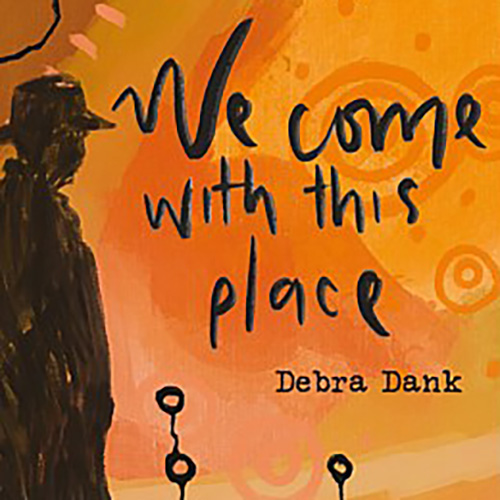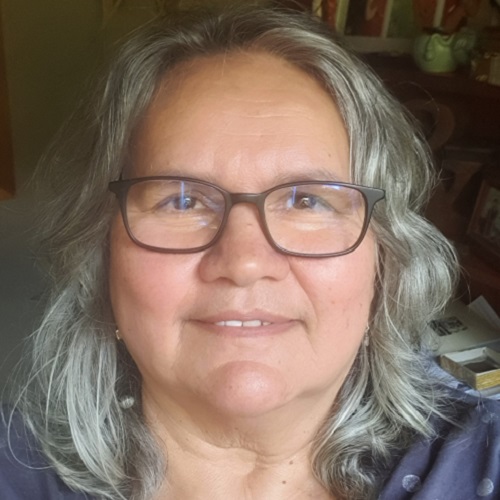20 June 2023
 Maintaining traditional Aboriginal storytelling is critically important in recognising First Peoples' histories, experiences and identities, says University of South Australia Visiting Research Fellow Dr Debra Dank.
Maintaining traditional Aboriginal storytelling is critically important in recognising First Peoples' histories, experiences and identities, says University of South Australia Visiting Research Fellow Dr Debra Dank.
Author and academic Dr Dank, a Gudanji/Wakaja woman from the Barkly Tablelands in the Northern Territory, says traditional storytelling must be preserved to ensure the meanings of Aboriginal history and perspectives aren’t lost.
She will present A Story of Souls, an event inspired by her book, We Come With This Place, at The Bob Hawke Prime Ministerial Centre, University of South Australia, on 22 June to explore how traditional stories begun “long before paper and words learned to yarn together”.
Her memoir of family, community and Country highlights how the English language fails to fully capture the essence of the more than 250 First Nation languages that were once spoken in pre-colonial Australia.
“Every opportunity to maintain stories and Aboriginal narratives must be taken because they form a critically important history of this place,” Dr Dank says.
“Our languages have grown, lived, existed, and evolved here for thousands of years. English has arrived in the very recent past. So, Aboriginal people are now required to engage with a standard Australian English which exists in a whole range of different forms.
“We must be cognisant of the breadth of standard Australian English and the complexity around its capacity to articulate Aboriginal lived experience, knowledge and ways.”
Dr Dank’s book We Come With This Place began as part of a PhD in narrative theory and semiotics at Melbourne’s Deakin University and followed almost four decades of education experience across primary, secondary and tertiary levels.
A tribute to the Gudanji People, the book tells the stories of Country as well as perspectives and experiences from Dr Dank’s own life and those of family.
Recently, We Come With This Place was awarded a record four out of 14 NSW Premier's Literary Awards including the top gong, Book of the Year.
At the heart of Aboriginal storytelling is language – something UniSA Associate Director for Regional Engagement Dr Sam Osborne says helps informs identity and worldview.
“In Pitjantjatjara language, this is kulintja. This is our sense of self and understanding of the world,” he says.
“Without this language foundation, identity formation is all the much harder and complex and leads to struggles to understand ourselves and the world around us.”
The speaking of Aboriginal languages has been impacted by colonial laws and policy, which has result in a drastic reduction of the hundreds of Aboriginal languages spoken at the time of colonisation.
Dr Osborne has worked in Aboriginal Education since 1995, including as principal of the Ernabella Anangu School in the remote northwest of South Australia, just south of the Northern Territory border.
He says that are currently used at home as children’s first language, which is a fragment of the more than 250 languages spoken in pre-colonial Australia.
“Aboriginal languages are often viewed in deficit and as static – something of the past. However Aboriginal languages are dynamic and provide intimate insights into living with the land in Australia,” he says.
“It is vital that Aboriginal voices and stories are presented in First Voice wherever possible. This requires a patient and careful method to ensure authentic voice and representation.”
UniSA is sharing Aboriginal voices during a critical time for Australia’s proposed Constitution alteration.
Two prominent Aboriginal Australians Professor Tom Calma AO and Professor Dr Marcia Langton AO who were instrumental in co-designing the model for the Voice to Parliament also shared their perspectives in an event presented by the Hawke Centre in May.
A Story of Souls with Dr Debra Dank is on at The Bob Hawke Prime Ministerial Centre, UniSA City West, on Thursday 22 June, 6pm to 7.15pm.
For more information visit the UniSA website.

…………………………………………………………………………………………………………………
Media contact: Melissa Keogh, UniSA Media M: +61 403 659 154 E: Melissa.Keogh@unisa.edu.au



